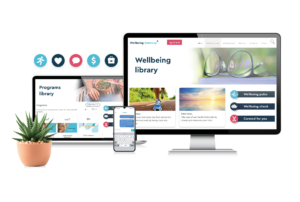The benefits of getting the right amount of good quality sleep are extensive and impact not only physical health but also cognitive function, emotional regulation, and mental health.
Did you know?
Most adults need between 7-8 hours of sleep per night, however almost one in 3 Australian adults are only getting 6 hours or less.
Why should I prioritise sleep?
Enhanced cognitive function
During sleep, the brain consolidates memories, strengthens neural connections, and improves your ability to learn and process information which means you will have sharper focus, faster reaction times, and be better able to make decisions throughout the day.
Improved physical health
Sleep is essential for physical repair, recovery and strengthening of the immune system.
Reduced stress
Sleep deprivation can exacerbate stress and negatively impact emotional regulation while getting a sufficient amount of sleep helps to build resilience and promote mental and emotional wellbeing.
Create a space that promotes good quality sleep
The quality of your sleep is as important as the amount you get each night. Here are two top tips to help you create a calm space that promotes good quality sleep:
Lights out
Darkness triggers the production of the sleep hormone melatonin, which regulates sleep-wake cycles.
Use blackout curtains or an eye mask to create a dark space while you are sleeping and dim the lights in your home for an hour or two before you go to sleep to signal to your body that it should start to wind down.
Keep your cool
A cool room promotes better sleep so try to keep the temperature in your bedroom around 20 degrees.
Think about the fabrics of your pyjamas and bedding – cotton and bamboo will help your body regulate it’s temperature while you sleep while some synthetic fabrics could make you hot and uncomfortable, causing you to wake up unnecessarily.
Relax, rest, recharge
Promoting relaxation in your body before you go to bed is important to help you go to sleep faster and achieve better quality sleep.
Before you go to sleep, you might want to try:
Mindfulness or meditation
Practices like mindfulness, meditation or simple deep breathing exercises can quiet the mind and reduce stress or anxiety.
You can do this on your own by sitting or laying down comfortably and focusing on slowing down your breathe.
There are also numerous resources online to guide you through relaxation practices.
Digital detox
The blue light emitted from electronic devices disrupts melatonin production which can make it harder to fall asleep.
Towards the end of the day, change the display settings on your devices to night-mode which emits less blue light and an hour before you go to sleep, put them away altogether.
Get support when you need it
If you require counselling, coaching or support, our experienced clinicians are available. Call us or request an appointment online.
Looking for more resources?
Register for Wellbeing Gateway. Your personalised mental health and wellbeing companion.

